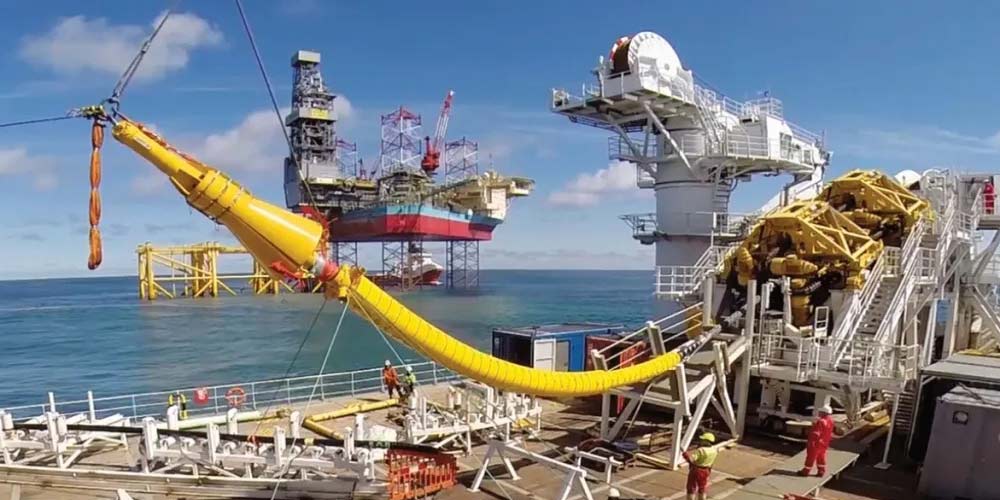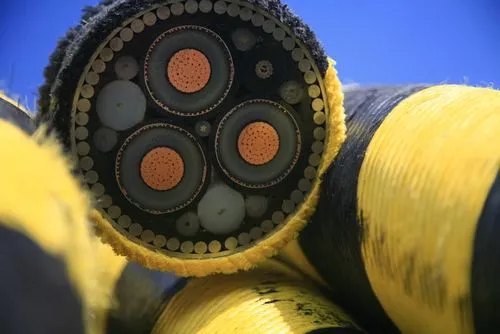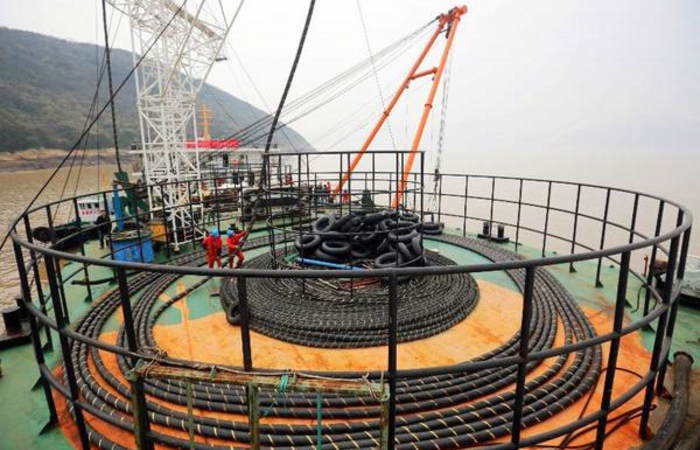World’s largest submarine cable project gets UAE telecom giant on board to build landing site in Sharjah
In an increasingly interconnected world, the significance of robust telecommunication infrastructure cannot be overstated. The proliferation of digital technologies has spurred global demand for high-speed internet connectivity, prompting the initiation of ambitious projects to enhance global communication networks. Among these endeavors, the construction of submarine cables plays a pivotal role, facilitating the transmission of vast amounts of data across continents.
Recently, the announcement of the world’s largest submarine cable project, coupled with the involvement of a UAE telecom giant in constructing a landing site in Sharjah, underscores the evolving landscape of global connectivity and its implications for various stakeholders. This essay delves into the significance of this monumental project and its potential impacts on international communication networks, economic development, and geopolitical dynamics.

The Significance of Submarine Cable Projects
Submarine cables are the backbone of international telecommunications, serving as the primary means of transmitting internet traffic across oceans. Unlike satellite communication, submarine cables offer unparalleled speed, reliability, and bandwidth capacity, making them indispensable for global connectivity. These cables, consisting of fiber-optic strands encased in protective layers, span thousands of kilometers beneath the ocean’s surface, linking continents and enabling seamless data exchange between distant regions.
The initiation of the world’s largest submarine cable project represents a landmark endeavor aimed at enhancing global connectivity on an unprecedented scale. Such projects involve meticulous planning, substantial investment, and collaboration among multiple stakeholders, including telecommunications companies, governments, and international organizations. The deployment of advanced submarine cable systems contributes to expanding internet access, accelerating digital transformation, and facilitating cross-border communication and commerce.
The Role of UAE Telecom Giant in Sharjah’s Landing Site
The involvement of a UAE telecom giant in constructing a landing site for the submarine cable project in Sharjah underscores the strategic importance of the region as a hub for international connectivity. Sharjah, situated at the crossroads of major trade routes and possessing state-of-the-art infrastructure, emerges as an ideal location for establishing critical telecommunications infrastructure. By partnering with a prominent telecom provider, Sharjah aims to bolster its position as a key player in the global telecommunications landscape and capitalize on the burgeoning demand for connectivity services.

The construction of a landing site involves the establishment of a terrestrial endpoint where submarine cables emerge from the ocean and connect to onshore infrastructure. This pivotal infrastructure component serves as a gateway for international data traffic, enabling seamless integration with domestic telecommunications networks. The collaboration between the UAE telecom giant and local authorities in Sharjah exemplifies a symbiotic partnership to foster economic growth, technological innovation, and regional development.
Implications for International Communication Networks
Completing the world’s largest submarine cable project and establishing a landing site in Sharjah have profound implications for international communication networks. Firstly, the enhanced capacity and reliability of submarine cables will facilitate the transmission of large volumes of data, thereby meeting the growing demand for bandwidth-intensive applications such as streaming media, cloud computing, and IoT devices.
Secondly, the expanded connectivity enabled by the submarine cable project will foster closer collaboration and information exchange among nations, driving innovation, and knowledge sharing across diverse sectors. From scientific research to business ventures, the seamless flow of information facilitated by submarine cables will catalyze progress and spur economic development on a global scale.
Thirdly, the strategic positioning of landing sites, such as the one in Sharjah, reinforces the importance of geographic location in shaping communication networks and trade routes. As a gateway between East and West, Sharjah’s role in facilitating international connectivity exemplifies the interconnected nature of global telecommunications infrastructure and its impact on regional dynamics.
Economic and Socioeconomic Impacts
The construction of a landing site for the submarine cable project in Sharjah is poised to generate significant economic benefits for the region and beyond. Firstly, the influx of investment associated with the project will create employment opportunities, stimulate economic activity, and attract further foreign investment in related industries such as technology, logistics, and real estate development.
Secondly, the improved connectivity facilitated by the submarine cable project will empower businesses to access global markets, expand their customer base, and leverage digital platforms for innovation and growth. Small and medium-sized enterprises (SMEs) stand to benefit immensely from enhanced internet connectivity, as they gain access to a broader range of resources, markets, and collaboration opportunities.
Thirdly, the socioeconomic impacts of improved connectivity extend beyond the business realm, encompassing areas such as education, healthcare, and governance. Access to high-speed internet enables remote learning, telemedicine, e-government services, and other digital initiatives that enhance quality of life, promote social inclusion, and empower communities to thrive in the digital age.

Geopolitical Implications
The development of submarine cable infrastructure, including landing sites such as the one in Sharjah, has significant geopolitical ramifications. As communication networks become increasingly vital for global commerce, security, and diplomacy, the control and protection of submarine cables emerge as strategic imperatives for nations seeking to safeguard their interests and assert influence in the digital domain.
The involvement of a UAE telecom giant in the construction of the landing site in Sharjah reflects the country’s aspirations to play a prominent role in shaping regional and global telecommunications networks. By establishing critical infrastructure and forging strategic partnerships, the UAE aims to enhance its position as a key player in the evolving landscape of digital connectivity and leverage its geographic advantage to foster economic growth and geopolitical influence.
The announcement of the world’s largest submarine cable project and the involvement of a UAE telecom giant in constructing a landing site in Sharjah herald a new era of global connectivity and collaboration. As communication networks continue to expand and evolve, the significance of submarine cables as the backbone of international telecommunications cannot be overstated. The establishment of critical infrastructure in strategic locations such as Sharjah underscores the interconnected nature of global telecommunications networks and their profound implications for economic development, societal progress, and geopolitical dynamics. By embracing innovation, fostering partnerships, and investing in future-ready infrastructure, stakeholders can harness the transformative power of telecommunications to build a more connected, prosperous, and resilient world.
